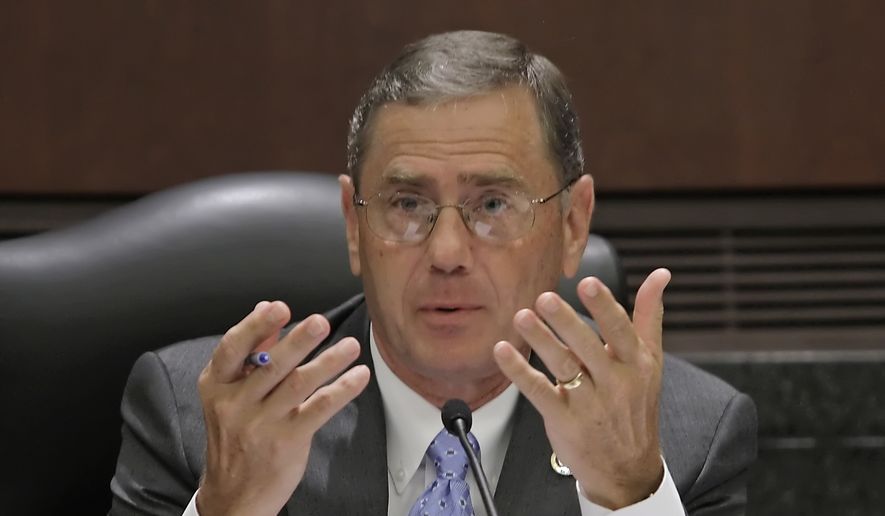In an effort to put an end to Operation Choke Point — a financial task force that was created by the Obama administration to “choke out” businesses it finds objectionable like gun shops — the Federal Deposit Insurance Corp. issued a letter Wednesday saying all banks should examine their customer relationships on a case-by-case basis and not by industry operational risk.
The government agency followed the action with a memorandum to its supervisory staff requiring examiners put in writing their recommendation to terminate an account, which the financial institution must review before the account is ended.
The memorandum makes it very clear that “reputational risk” alone is not enough reason to end a client’s banking account.
“The FDIC is issuing this statement to encourage institutions to take a risk-based approach in assessing individual customer relationships rather than declining to provide banking services to entire categories of customers,” the FDIC said in a letter to its financial institutions released Wednesday.
Both the memorandum and formal financial institution letter were requested by Rep. Blaine Luetkemeyer, Missouri Republican, after reports surfaced last year that the FDIC created a so-called “reputational-risk” industry list, which financial institutions were using as a guide on the parties with whom they do business.
This action choked off financial services to many legitimate small businesses that were defined as high-risk on the list, including payday lenders, gun retailers and ammunition merchants.
The FDIC has since retracted the list.
“We’ve gone down that road and have choked off Choke Point,” said Mr. Luetkemeyer in an interview with The Washington Times. “The FDIC has acknowledged wrongdoing and put in place measures to stop this activity.”
Mr. Luetkemeyer is still moving forward with a bill he introduced last session aimed at cementing the FDIC’s proposed actions into law and to insure other financial institutions like the Consumer Financial Protection Bureau and the Federal Reserve commit to similar steps.
In addition to its memorandum and letter to institutions, the FDIC has agreed to cooperate in an inspector general investigation into Operation Choke Point, allowing the IG to interview all staff members with knowledge of the operation, Mr. Luetkemeyer said.
In December, the House Committee on Oversight and Government Reform released a report detailing the FDIC’s involvement in Operation Choke Point and concluded that the FDIC “explicitly intended its list of ’high-risk merchants’ to influence banks’ business decisions. FDIC policymakers debated ways to ensure that bank officials saw the list and ’get the message.’”
“I’m pleased the FDIC has agreed to work with the IG like we’ve requested and to start to change the culture of what’s going on,” said Mr. Luetkemeyer, adding that the regulator went one step further than the congressional proposed reforms and agreed to host an email address of the agency’s ombudsman listed on their website so consumers could report any potential abuse with their identity protected.
“FDIC is the main culprit in this operation, and if they take the lead in stopping this nonsense, the other agencies will follow,” he said.
Last year, The Washington Times broke the story that several legitimate gun retailers were dropped by their banks as a result of Operation Choke Point, including Powderhorn Outfitters, a sports shop in Hyannis, Massachusetts, which was dumped by its bank of 36 years — TD Bank — as a result of “reputational risk.”
• Kelly Riddell can be reached at kriddell@washingtontimes.com.




Please read our comment policy before commenting.